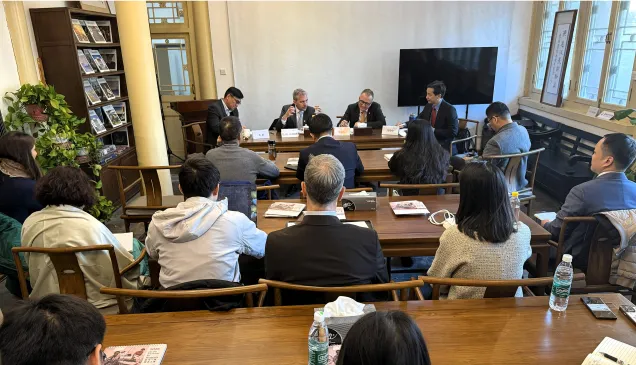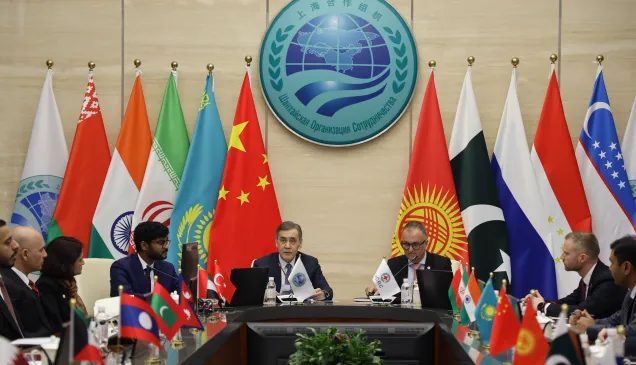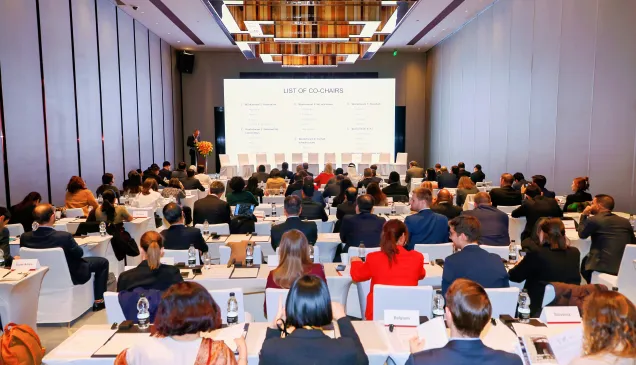Adhering to Humanitarian Norms Paves Way to Peace
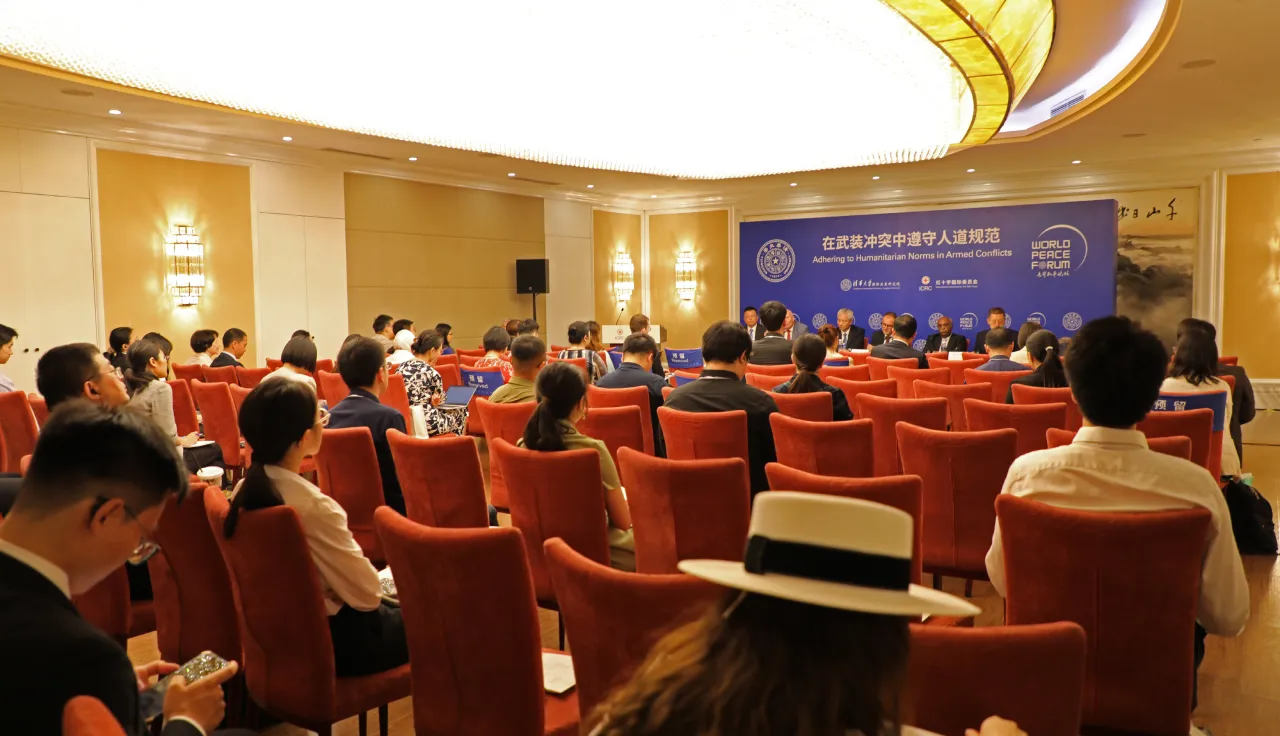
The International Committee of the Red Cross (ICRC) and the Institute of International Relations of Tsinghua University (TUIIR) co-hosted a panel on "Adhering to Humanitarian Norms in Armed Conflicts" on July 7 during the 12th World Peace Forum (WPF) in Beijing. The panel brought together nearly 40 experts and scholars from diplomatic circles, the Red Cross Society of China, universities, and think tanks.
As this year marks the 75th anniversary of the adoption of the Geneva Conventions, which is at the core of international humanitarian law (IHL), the panel focused on the high relevance of IHL and the importance of upholding humanitarian principles to peace.
Balthasar Staehelin, Personal Envoy of the ICRC President to China and Head of the ICRC Regional Delegation for East Asia, emphasized that it is time to make the laws of war a political priority.
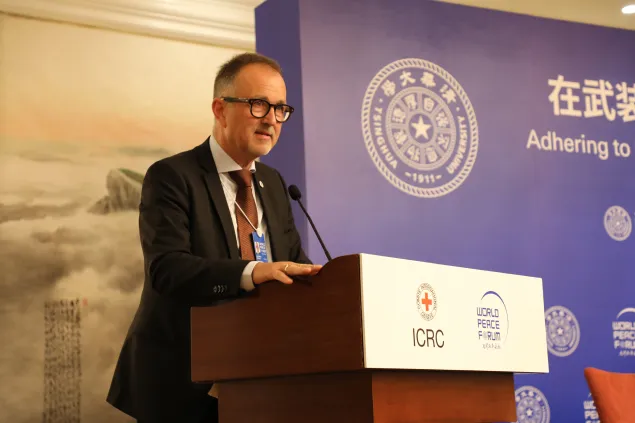
Balthasar Staehelin, Personal Envoy of the ICRC President to China and Head of the ICRC Regional Delegation for East Asia, delivers an opening speech at the panel.
Reviewing the evolution of IHL, Jürg Burri, Ambassador of Switzerland to China, highlighted Switzerland's key role as the guardian of the Geneva Conventions, stressing that IHL remains necessary and exceedingly relevant in our world today. "As we navigate the complexities of modern warfare, let us reaffirm our commitment to safeguarding human dignity and protecting the most vulnerable," he said.
Participants also discussed the myriad challenges in implementing IHL, such as increasingly complex crisis situations, the urbanization and prolongation of armed conflicts, the surge in the number of non-state armed groups, and the impacts of climate change and new technologies. The development of new technologies, such as artificial intelligence (AI), and their impact on humanitarian action and norms sparked heated discussion.
Yang Mingjie, President of the China Institutes of Contemporary International Relations, raised concerns of the negative impact of the militarization of AI on humanitarian norms. To mitigate the impact, he suggested resolving conflicts through political negotiations, strengthening governance over the military applications of AI, and seeking consensus and solutions within China's Global Development Initiative, Global Civilization Initiative, and Global Security Initiative.
Stressing the concept of "AI for Good," Yu Jiang, Vice President of the China Institute of International Studies, urged that while the governance of new technologies like AI need to be strengthened, they should also be guided for positive impacts. He also pointed out the disproportionate spending on military expenditures compared to peacebuilding efforts amidst growing conflicts. Additionally, violations of IHL, the increase in non-state armed actors, unilateral sanctions, among other issues, have serious implications for humanitarian actions and norms. He suggested that while taking humanitarian issues as priorities, countries should enhance communication and mutual trust, promote international consensus, and jointly strive for peace.
In light of the growing geopolitical competition and humanitarian crises, experts at the panel also emphasized the urgent need for global synergy and political commitment to address the humanitarian consequences of armed conflicts.
Rahamtalla Mohamed Osman Elnor, Permanent Representative of the African Union to China, called for increased international support and collaboration to enhance humanitarian effectiveness, urging stakeholders to uphold their commitments and support vulnerable populations. "I wish to call on the international community to increase humanitarian support for affected populations in Africa, ensuring the needs of the most vulnerable populations are met, including the protection and assistance of refugees and displaced populations," he said.
The World Peace Forum, established in 2012, is the only high-level non-governmental annual forum focused on international security, organized by Tsinghua University with the Chinese People's Institute of Foreign Affairs. The ICRC has participated in the WPF since 2021 leveraging the forum as a key platform to gain diplomatic support and promote IHL.

